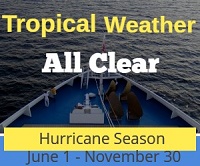Tips for Special Needs Passengers
A cruise guide for passengers sailing with special needs
Venice
Get to know our slice of Paradise - located on the SW Coast of Fl.
Attractions
Beaches
Canoe/Kayak
Boat Launches
Boat Charters
Fishing Charter
Fishing Piers
Historical Sites
Golf
Parks
Hotels
Relocate
Venice Map
Good to Know
Safety Overview
Natural Hazards
Cruise Ship
Fires
Sudden
Lists/Rogue Waves
Smoking Policies
Travel Warnings
Ship Tracker
(external link)
ships > Special Needs
Special Needs Passengers
The days of limited cruising options are fast fading. More ships are being constructed with the needs of disabled or impaired passengers in mind. With a little research and planning, disabled passengers can have access to all the amenities of able-bodied passengers for a relaxing cruise vacation. Click here for cruise line special needs information.
Keep in mind the following when planning your cruise:
1) Research your cruise line!
The newest cruise ships feature wide corridors, accessible public restrooms, gentler inclined ramps, and lowered guest relations desks. Keep in mind that older vessels may have modified to accommodate special needs, but could have areas that are not accessible. Each cruise line should be able to provide you with the unique accessibility features of each ship in its fleet.
2) Contact early and often
Every cruise line requests that passengers with special needs contact them about accessibility requirements. In order to maximize your cruising experience, give your cruise line advance notice of your needs and check on your request no later than a month before the sail date. Larger cruise lines feature Access & Compliance Departments designed to make sure all guests accommodated regardless of needs. Keep in mind portable accessibility kits, American Sign Language interpreters, and other accommodations may be shared amongst vessels at a port. Cruise lines need the advance notice to arrange all the accommodations ahead of your arrival. Plus, on some cruise lines, accessible staterooms are booked on a first come, first served basis! Contacting the cruise line early in the booking process regarding your special needs helps the staff prepare to provide you with the best cruising experience possible.
3) Submit special needs forms
Cruise lines often request passengers complete a “guest special needs form” to highlight each guest’s accessibility needs. Furthermore, in the case of requesting a wheelchair accessible suite, the form is used to verify that the guest actually needs the room. The number of modified and accessible suites on even the largest of ships is limited and cruise lines want to ensure passengers booking those rooms truly need the unique features. Complete the form early in the booking process to reserve your accessible stateroom.
4) Medical suppliers at sea
It’s no secret that space on a cruise ship is at a premium. Most ships only carry enough medical supplies for emergencies. This means passengers requiring wheelchairs or oxygen cannot rely on the cruise line to provide these items for the duration of cruise. Instead, cruise lines are referring guests to outside contractors for medical equipment.
Conduct your research; some cruises accept supplies from only one vendor. The most commonly used vendors are:
Special Needs at Sea
Toll-free: 1-800-513-4515
Fax: 1-800-513-4516
Email:
info@specialneedsgroup.com
Website: www.specialneedsatsea.com
Special Needs at Sea rents wheelchairs, scooters, oxygen, patient lifts, and other supplies to most major cruise lines.
Care Vacations
Toll-free: 1-877-478-7827
Fax: 1-800-648-1116
Email: csa@carevacations.com
Website: http://carevacations.com
Care Vacations supplies mobility scooters, oxygen, and other equipment to
many major cruise lines.
4) Clarify on-ship assistance
Modern cruise ships have spacious corridors, lowered help desks, and special seating areas for mobility impaired guests. Cruise lines may be more accommodating than ever before, but the staff are limited in the services they can provide. For instance, staff cannot carry or lift passengers or their mobility scooters. Some cruise lines offer a ship tour for visually impaired guests, but they will not provide a personal guide for the duration of the cruise. Most cruise lines will not assist with dialysis or medical injections. Some provide American Sign Language interpreters given enough advance notice, while other cruise lines provide scripts of the entertainment. Check on what services your cruise line offers and those it does not.
5) Research accessible tours
Plan ahead when booking excursions. While more tours are catering to
guests with accessibility and mobility needs, not all countries have
transportation that accommodates scooters and wheelchairs. Some cruise lines
may require you to book separate transportation at an additional cost. For
ports of call using tenders, usually a collapsible wheelchair is required
and the guest must be partially mobile in order to navigate stairs. Should
you be unable to visit a port of call, there is no refund.
6) Bring your service animals—and their medical records
Most cruise lines welcome service animals and will provide a special relief area for the animal. Make sure to bring enough food and supplies for your animal assistant and pack their most recent vaccination record. Not having the accurate medical records could result in your animal being quarantined. Check ahead about the regulations for each country, as not all will accept a three-year rabies vaccination. In some ports of call, your dog may not be allowed off the ship.
Remember, the cruise line staff is there to provide the best service possible for all guests. Never hesitate to let guest relations know when there is an issue. With a little research and planning, there is no reason to be limited in activities, ports of call, or excursions, regardless of your accessibility needs.







